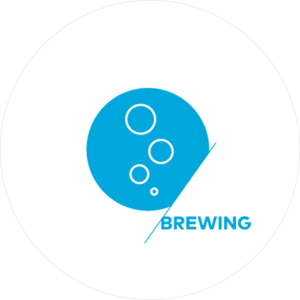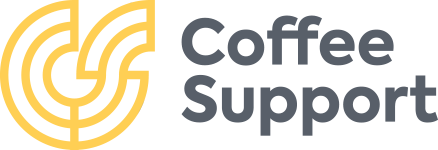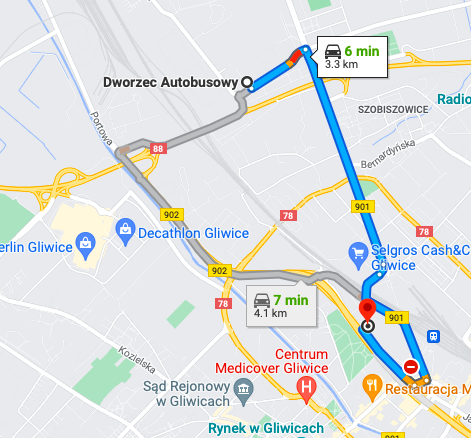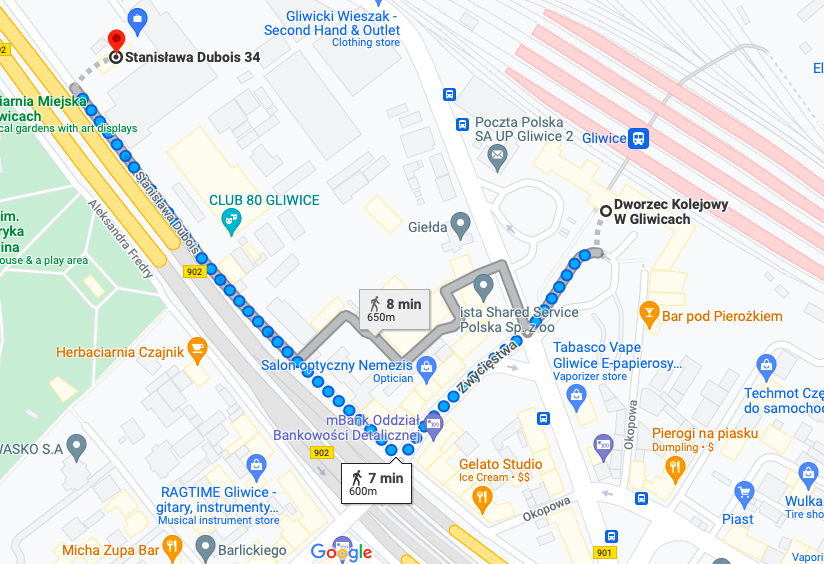
Brewing Skills training is practical skills and knowledge about brewing process, sensory aspects of brewed coffee, it’s freshness and storing condition and the best quality of water for coffee and equipment.
General information:
Brewing training is focused on gaining practical skills of brewing coffee using gravity methods (Drip, Chemex, etc.) and immersion methods (Frenchpress, Aeropress). The emphasis was placed on learning and understanding the factors influencing the quality and sensorics of the brewed coffee.
Participants learn to create and modify coffee recipes and control their quality using tools such as a refractometer and the SCA brewing control chart. An important part of the training is learning how to create precise sensory descriptions of the brewed coffee. The water module was also included in the course program. The issues of the chemical composition of water, various filtration methods and its impact on the extraction and sensorics of coffee will be discussed.
Foundation level:
The training allows you to learn about brewing methods other than the espresso machine. Participants learn to use devices such as the dripper V60 and the aeropress, learn the basic parameters affecting the quality of the brewed coffee and the ingredients of the coffee recipe. The training also includes an introduction to coffee sensors. Participants learn to assess the correctness of brewed coffee, learn the basic categories and sensory attributes useful for describing it.
The scope of the course:
- Species, botanical varieties and methods of coffee processing.
- Growing coffee around the world.
- Factors influencing the taste and quality of the brewed coffee: weight, degree of grinding, water temperature, brewing time.
- Introduction to the concepts of% extraction and% TDS (degree of infusion and strength of coffee infusion).
- Coffee freshness.
- Coffee preparation exercises with the V60 drip and aeropress.
- Introduction to coffee sensors: describing the taste and aroma of the brew, assessing the correctness of the brewed coffee.
Additional information:
- Requirements for participants: experience is not required.
- The training ends with a theoretical and practical exam. Obtaining positive results of the exams gives the opportunity to receive the SCA certificate.
- Number of participants: 3 – 6 people.
- Duration of the course: 8 hours (a 45-minute meal break is planned during the course).
- Course price without SCA certificate: PLN 890 gross per person.
- The price of the SCA-certificate: PLN 575 gross per person.
Intermediate level:
The course is focused on the practical learning of creating recipes and preparing coffee using various methods. Participants test the influence of various factors on the brewing process. An important part of the training is the practical knowledge of water quality and methods of testing it.
The brewing intermediate training, in addition to the skills related to brewing coffee and preparing recipes, puts emphasis on the practical learning of the sensory description of the brew. Participants build their own dictionary of coffee descriptors and use it in practice to analyze infusions with different% TDS and% extraction. They learn how to assess the correctness of brewed coffee without using a refractometer.
The scope of the course:
- History of coffee research.
- Factors influencing the extraction and quality of the infusion: degree of roasting, ratio (proportion of the amount of coffee and water), degree of grinding, temperature, brewing time, agitation.
- Classification of brewing methods.
- Coffee brewing stages.
- Definitions: % TDS and % of extraction.
- Learning to use the SCA Coffee Brewing Control Chart.
- Support for the refractometer and the VST application.
- Categories and sensory attributes that can be used to describe the infusion.
- Sensory analysis of infusions with different % extraction and % TDS.
- Identification of the correctness of the brewed coffee, modification of coffee recipes.
- Coldbrew: definitions and recipes.
- Coffee water, terms: general hardness, carbonate hardness, buffer capacity, pH.
- Water quality control: drop tests, pH meter, conductometer.
- Test of coffee brewed in waters with a different mineral composition.
Additional information:
- Requirements for participants: recommended Brewing course at the basic level.
- The training ends with a theoretical and practical exam. Obtaining positive results of the exams gives the opportunity to receive the SCA certificate.
- Number of participants: 3 to 6 people.
- Duration of the course: 2 days, approximately 8 hours each (a 45-minute meal break is provided for each day of the course).
- Course price without SCA certificate: PLN 1,990 gross per person.
- Price of the SCA-certified course (only for SCA members): PLN 2,565 gross per person.
Professional level:
The highest level of brewing training is focused on improving the participants’ independent work in terms of planning coffee recipes, modifying brewing parameters, using the SCA Coffee Brewing Control Chart and preparing infusions of various strength and extraction levels. The emphasis was placed on identifying properly brewed coffee not only with a refractometer, but also with individual sensory tools.
The course includes an exercise referring to the formula of the compulsory competition of the Brewers Cup Championship competition, which facilitates independent work on a coffee recipe, not only for future players.
The topic of coffee water has been extended to include various methods of its filtration and the participants’ independent creation of water solutions with a different degree of mineralization and composition.
The scope of the course:
- 7 factors according to SCA that influence coffee extraction and brew quality.
- Additional parameters that may influence coffee extraction: degree of roasted coffee, dripper material and shape of the brewing device, comparative tests.
- Filter coffee maker: modifying brewing parameters, preparing correct recipes.
- Correct application of the bypass method, test of infusions of various dilution degrees.
- The impact of the grinder burrs on the quality of the brew.
- Brewers Cup competition: compulsory competition. Assessment criteria, simulation of professions, discussion of printed matter.
- Exercises in recipe planning and preparation of infusions with different% extraction and% TDS using gravity and immersion methods.
- Improving the description of coffee infusions, sensory identification of properly brewed coffee, modification of recipes.
- Refining recipes using beans with different degrees of firing and processing.
- Revision of the most important concepts of coffee water chemistry: total hardness, carbonate hardness, buffer capacity, pH, methods and devices for testing the above parameters.
- Various recommendations for the mineral composition of coffee water.
- Independent design and preparation of water for coffee with different mineral composition.
- Protection of coffee equipment against limescale and corrosion, index LSI.
- The influence of different mineralization of water on the extraction and sensorics of the infusion.
- Various water filtration systems, selection of appropriate filtration systems to meet the needs.
Additional information:
- Requirements for participants: Intermediate level Brewing course required.
- The training ends with a theoretical and practical exam. Obtaining positive results of the exams gives the opportunity to receive the SCA certificate.
- Number of participants: 3 to 6 people.
- Duration of the course: 3 days, approximately 8 hours each (a 45-minute meal break is provided for each day of the course).
- Course price without SCA certificates: PLN 3,200 gross per person.
- Price of the SCA-certificate: PLN 3,775 gross. *
Foundation level:
The training allows you to learn about brewing methods other than the espresso machine. Participants learn to use devices such as the dripper V60 and the aeropress, learn the basic parameters affecting the quality of the brewed coffee and the ingredients of the coffee recipe. The training also includes an introduction to coffee sensors. Participants learn to assess the correctness of brewed coffee, learn the basic categories and sensory attributes useful for describing it.
The scope of the course:
- Species, botanical varieties and methods of coffee processing.
- Growing coffee around the world.
- Factors influencing the taste and quality of the brewed coffee: weight, degree of grinding, water temperature, brewing time.
- Introduction to the concepts of% extraction and% TDS (degree of infusion and strength of coffee infusion).
- Coffee freshness.
- Coffee preparation exercises with the V60 drip and aeropress.
- Introduction to coffee sensors: describing the taste and aroma of the brew, assessing the correctness of the brewed coffee.
Additional information:
- Requirements for participants: experience is not required.
- The training ends with a theoretical and practical exam. Obtaining positive results of the exams gives the opportunity to receive the SCA certificate.
- Number of participants: 3 – 6 people.
- Duration of the course: 8 hours (a 45-minute meal break is planned during the course).
- Course price without SCA certificate: PLN 790 gross per person.
- The price of the SCA-certified course: PLN 990 gross per person.
Intermediate level:
The course is focused on the practical learning of creating recipes and preparing coffee using various methods. Participants test the influence of various factors on the brewing process. An important part of the training is the practical knowledge of water quality and methods of testing it.
The brewing intermediate training, in addition to the skills related to brewing coffee and preparing recipes, puts emphasis on the practical learning of the sensory description of the brew. Participants build their own dictionary of coffee descriptors and use it in practice to analyze infusions with different% TDS and% extraction. They learn how to assess the correctness of brewed coffee without using a refractometer.
The scope of the course:
- History of coffee research.
- Factors influencing the extraction and quality of the infusion: degree of roasting, ratio (proportion of the amount of coffee and water), degree of grinding, temperature, brewing time, agitation.
- Classification of brewing methods.
- Coffee brewing stages.
- Definitions: % TDS and % of extraction.
- Learning to use the SCA Coffee Brewing Control Chart.
- Support for the refractometer and the VST application.
- Categories and sensory attributes that can be used to describe the infusion.
- Sensory analysis of infusions with different % extraction and % TDS.
- Identification of the correctness of the brewed coffee, modification of coffee recipes.
- Coldbrew: definitions and recipes.
- Coffee water, terms: general hardness, carbonate hardness, buffer capacity, pH.
- Water quality control: drop tests, pH meter, conductometer.
- Test of coffee brewed in waters with a different mineral composition.
Additional information:
- Requirements for participants: recommended Brewing course at the basic level.
- The training ends with a theoretical and practical exam. Obtaining positive results of the exams gives the opportunity to receive the SCA certificate.
- Number of participants: 3 to 6 people.
- Duration of the course: 2 days, approximately 8 hours each (a 45-minute meal break is provided for each day of the course).
- Course price without SCA certificate: PLN 1,900 gross per person.
- Price of the SCA-certified course (only for SCA members): PLN 2,465 gross per person. *
- The price of the SCA-certified course for people from outside the SCA association: PLN 2,920 gross.
* Certificates are priced only for SCA members with a currently paid membership fee.
Professional level:
The highest level of brewing training is focused on improving the participants’ independent work in terms of planning coffee recipes, modifying brewing parameters, using the SCA Coffee Brewing Control Chart and preparing infusions of various strength and extraction levels. The emphasis was placed on identifying properly brewed coffee not only with a refractometer, but also with individual sensory tools.
The course includes an exercise referring to the formula of the compulsory competition of the Brewers Cup Championship competition, which facilitates independent work on a coffee recipe, not only for future players.
The topic of coffee water has been extended to include various methods of its filtration and the participants’ independent creation of water solutions with a different degree of mineralization and composition.
The scope of the course:
- 7 factors according to SCA that influence coffee extraction and brew quality.
- Additional parameters that may influence coffee extraction: degree of roasted coffee, dripper material and shape of the brewing device, comparative tests.
- Filter coffee maker: modifying brewing parameters, preparing correct recipes.
- Correct application of the bypass method, test of infusions of various dilution degrees.
- The impact of the grinder burrs on the quality of the brew.
- Brewers Cup competition: compulsory competition. Assessment criteria, simulation of professions, discussion of printed matter.
- Exercises in recipe planning and preparation of infusions with different% extraction and% TDS using gravity and immersion methods.
- Improving the description of coffee infusions, sensory identification of properly brewed coffee, modification of recipes.
- Refining recipes using beans with different degrees of firing and processing.
- Revision of the most important concepts of coffee water chemistry: total hardness, carbonate hardness, buffer capacity, pH, methods and devices for testing the above parameters.
- Various recommendations for the mineral composition of coffee water.
- Independent design and preparation of water for coffee with different mineral composition.
- Protection of coffee equipment against limescale and corrosion, index LSI.
- The influence of different mineralization of water on the extraction and sensorics of the infusion.
- Various water filtration systems, selection of appropriate filtration systems to meet the needs.
Additional information:
- Requirements for participants: Intermediate level Brewing course required.
- The training ends with a theoretical and practical exam. Obtaining positive results of the exams gives the opportunity to receive the SCA certificate.
- Number of participants: 3 to 6 people.
- Duration of the course: 3 days, approximately 8 hours each (a 45-minute meal break is provided for each day of the course).
- Course price without SCA certificates: PLN 3,000 gross per person.
- Price of the SCA-certified course (only for SCA members): PLN 4,020 gross. *
- The price of the SCA-certified course for people from outside the SCA association: PLN 4,530 gross.
* Certificates are priced only for SCA members with a currently paid membership fee.




